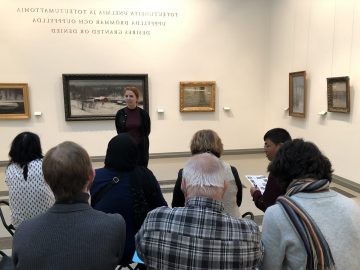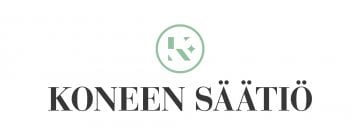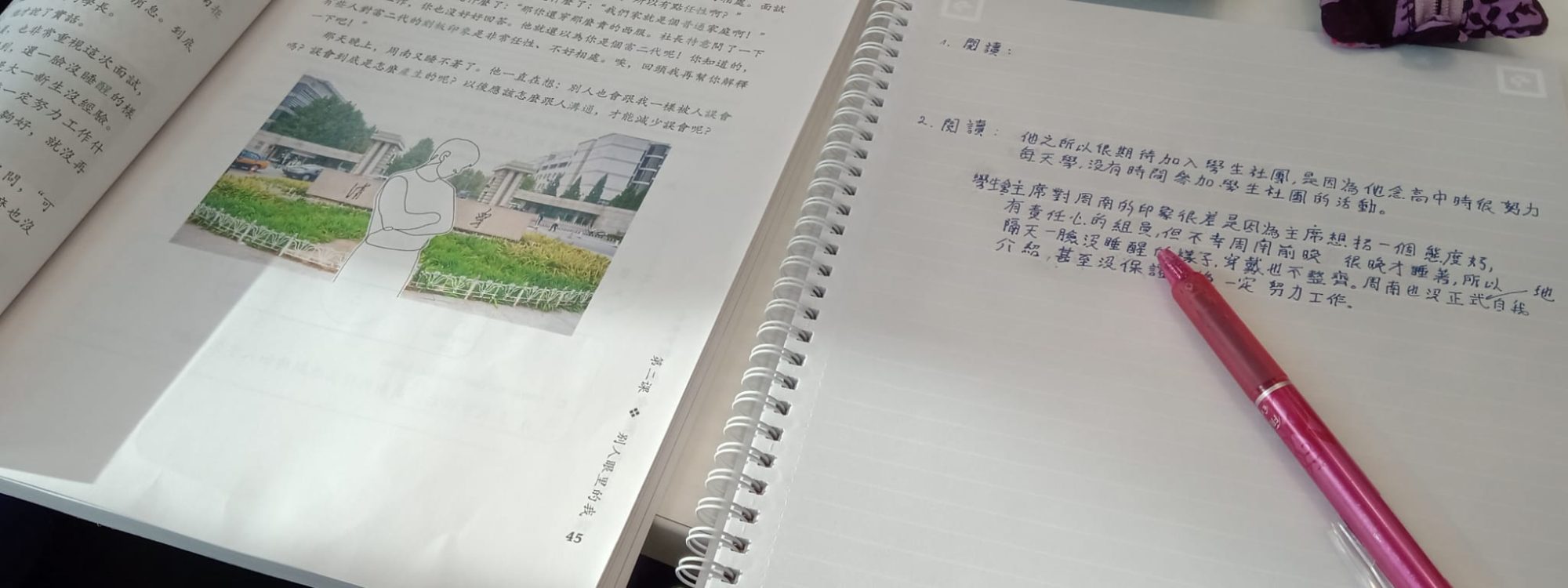Projects
LALI (Language and literacy learning through art)
The multinational LALI-project aims to support immigrants’ social and linguistic integration by teaching the local language and literacy through art. In addition to teaching the local language, the project creates online resources for teachers and other professionals who are involved in supporting immigrants’ integration process.
The outcome of the project is a freely available set of different products and teaching kits in four languages: Finnish, English, French and German. During the project, research material on multimodal interactions will also be collected. At the University of Turku, both Schools of the Faculty of Humanities participate in the project.
Project leader in Turku: Maarit Mutta
Financier of the project: ERASMUS+ (2017-1-FR01-KA204-037399), 2017-2020
International partners (LALI):
Élan interculturel (project coordinator, Paris, France)
De l’Art et D’autre (Paris, France)
Stand 129 (Vienna, Austria)
Institute of Informatics and Economics, University of Sopron (Hungary)
Other main collaborators:
Turku Art Museum
City of Turku (Integration services)

FDF2 (Fluency and Disfluency Features in L2 Speech)
The FDF2 project focuses on fluency and disfluency in second language speech. The project combines methods from the fields of second language acquisition research and psycholinguistics and employs a varied data set (including cognitive experiments, speech samples, and questionnaire data) to scrutinize second language fluency and factors affecting it. The FlowLang research group includes researchers from different disciplinary backgrounds, and the aim of the research group is to reconceptualize fluency to provide a new framework for future studies.
The emphasis is on examining the effect of task types (monologue, dialogue) and individual speaker characteristics (cognitive processes, experienced level of anxiety, and first language fluency) on second language fluency and disfluency. The results benefit second language learning and teaching, language assessment as well as the development of digital second language learning applications.
Project Leader: Pekka Lintunen, pekka.lintunen(at)utu.fi
Funding: Academy of Finland 2020–2024
For more information: https://sites.utu.fi/flowlang/en/projects/fdf2/
MultiFluency (Fluency across Multilingual Speakers)
The MultiFluency project examines the impact of individual speaking style in L1 (first language) and cross-linguistic differences (transfer) on second language (L2) speech. More specifically, the project examines Swedish-speaking university students’ fluency in their L1 and its effect on L2 speech fluency. In the project, speech samples from a comparison group of L1 Finnish speakers are also collected to examine fluency across several languages in the participants’ repertoire (L2 Swedish and English). The L1s examined in the project are thus Swedish and Finnish, and the target languages are Finnish, Swedish, and English, which allows for the comparison of multilingual speakers’ spoken language features across different target languages and L1s. The results will contribute to the teaching and assessment of Swedish as a second language and L1 Swedish speakers’ learning of additional languages.
Project Leader: Pekka Lintunen, pekka.lintunen(at)utu.fi
Funding: The Swedish Cultural Foundation in Finland 2020–2021
For more information: https://sites.utu.fi/flowlang/en/projects/multifluency/
Ethical and Sustainable Language Teaching (EKKO)
Ethical and Sustainable Language Teaching, funded by the Kone Foundation, is a four-year project launched in the School of Languages and Translation Studies at the University of Turku, Finland in January 2021. The cornerstone of the project lies in the question of how the principles of ethics and sustainability can be promoted in language teaching and pre-service teacher education.
Taking into account the aspects of sustainable development and language equality is challenging not only in language teaching but also in pre-service language teacher education. The purpose of the project is to research the essence of ethics and sustainable development principles and how they can be promoted in language teaching and pre-service language teacher education. Based on this research, we will develop engaging learning activities for language learners and pedagogic solutions for pre-service teachers and teachers, which promote ethical conduct, sustainable development and language equality.
Project director: Minna Maijala, minna.maijala(at)utu.fi
EKKO Team: Leena Maria Heikkola, Salla-Riikka Kuusalu, Päivi Laine, Maarit Mutta, Katja Mäntylä, Judi Rose, and Veijo Vaakanainen
More information: https://sites.utu.fi/ekko/en/
Project funding: Kone Foundation 2021—2024

Robolang
KISUVI
Multilingual writers’ writing processes: graph-theory based visualisation of formulaic sequences and fluency patterns (KISUVI)
KISUVI research, funded by Kone Foundation, is a four-year project launched in the School of Languages and Translation Studies at the University of Turku, Finland in January 2022. The project focuses on the study of writing fluency in first and foreign languages, in particular on the use of formulaic sequences.
This mixed-method project uses the graph theory-based keystroke logging software GGXLog, whose visualisation functions provide a new approach to the analysis of writing processes. It also allows a more precise definition of formulaic sequences in languages belonging to different typological families. The results of the project will contribute to the knowledge on the development and fluency of multilingual writers. The results will help educators and policy makers to design and develop teacher training and modern digital learning materials.
Project director: Maarit Mutta, maarit.mutta(at)utu.fi
KISUVI Team: Anni Hintikka (2022–2023), Sinikka Lahtinen, Päivi Laine, Mari Mäkilä, Katja Mäntylä, Antti Suomela (2023–), Outi Toropainen, Anne-Maj Åberg
Project funding: Kone Foundation 2022—2025
CORDIALIS (Connecting Remote Areas Through Digital Competences and Cultural Heritage)
L2 Interactional Fluency across Contexts (ILFACT)
The project L2 Interactional Fluency across Contexts (ILFACT) examines second language (L2) interactional fluency. Previous fluency research has mostly focused on examining individual speakers’ fluency, and fluency research based on interactional and multimodal analyses is rare. In the project, both interactional fluency features and interactional fluency assessments are examined. Interactional data will be collected from university students of English in Finland and Germany in their L2 English and in their first language (Finnish or German). The data set is analyzed with a multimodal, mixed-methods approach using quantitative and qualitative methods. The project benefits L2 learning, teaching, and language assessment by providing information about the nature of L2 interactional fluency and the factors impacting it.
Principal investigator: Academy Research Fellow Pauliina Peltonen
More information available on the project’s website: https://sites.utu.fi/flowlang/projects/ilfact
Project funding: Research Council of Finland 2024–2028
SustainLANG: Implementation of sustainable development goals in language teaching and learning
There is tremendous potential to implement education for sustainable development (ESD) in language education, as the pedagogical processes of language teaching and ESD are complementary.
The SustainLANG-project aims to
- study the integration of sustainable development goals (SDGs) into language teaching and learning at different educational levels in Finland
examine the practical implementation of ESD in language classrooms and teaching materials - map the extent of ESD and language teachers’ and learners’ attitudes towards it using a large-scale questionnaire
- develop an innovative theory- and practice-driven ESD implementation model for language teaching and learning
This project will provide new insights into the current state of and possibilities for ESD in language education in Finland, which can be adapted internationally. The aim is to promote change in language education theory and practices.
The SustainLANG-project received funding by the Research Council of Finland (2024–2028).
Principal investigator: Minna Maijala
Project website: https://sites.utu.fi/sustainlang/en/

